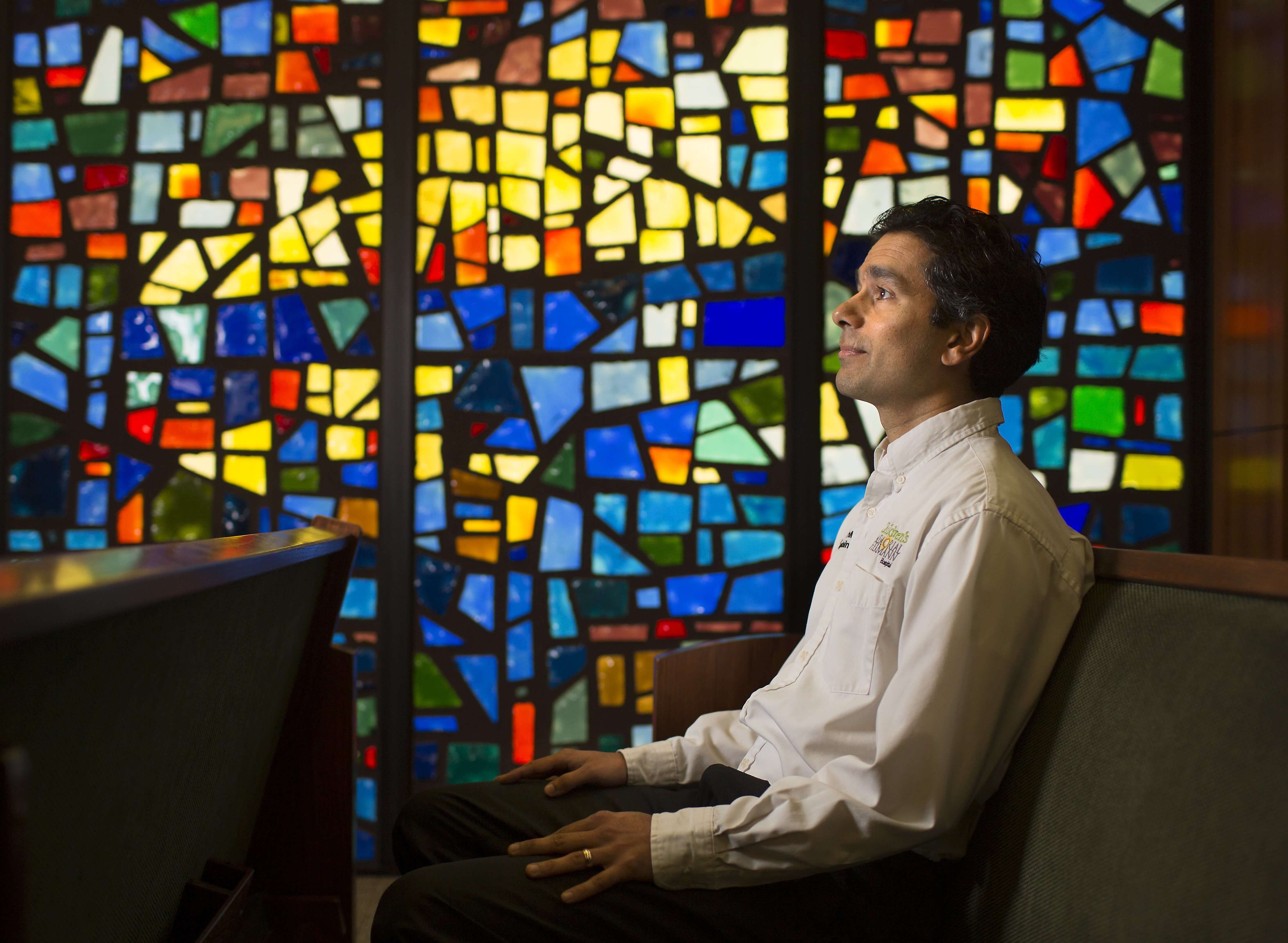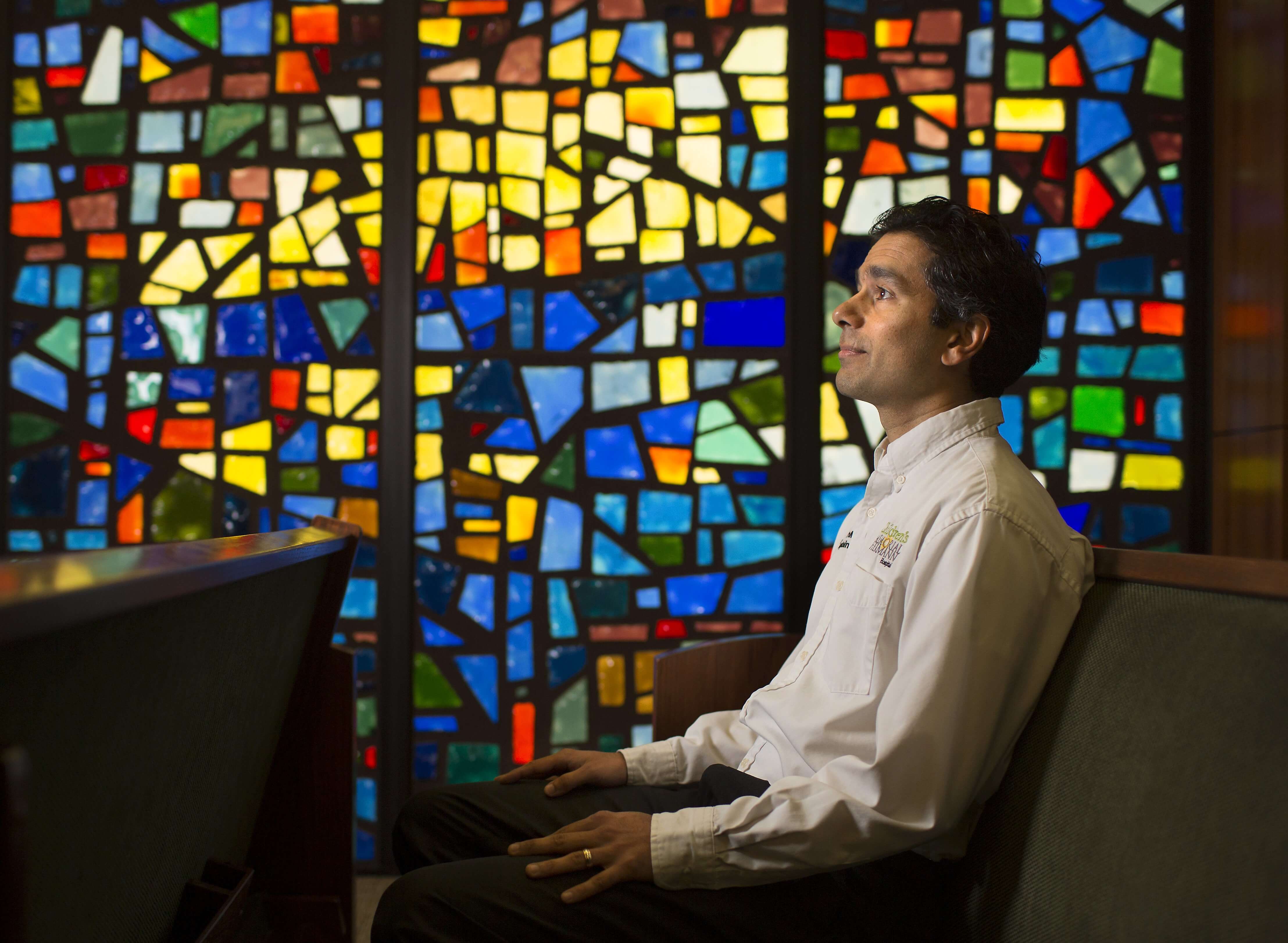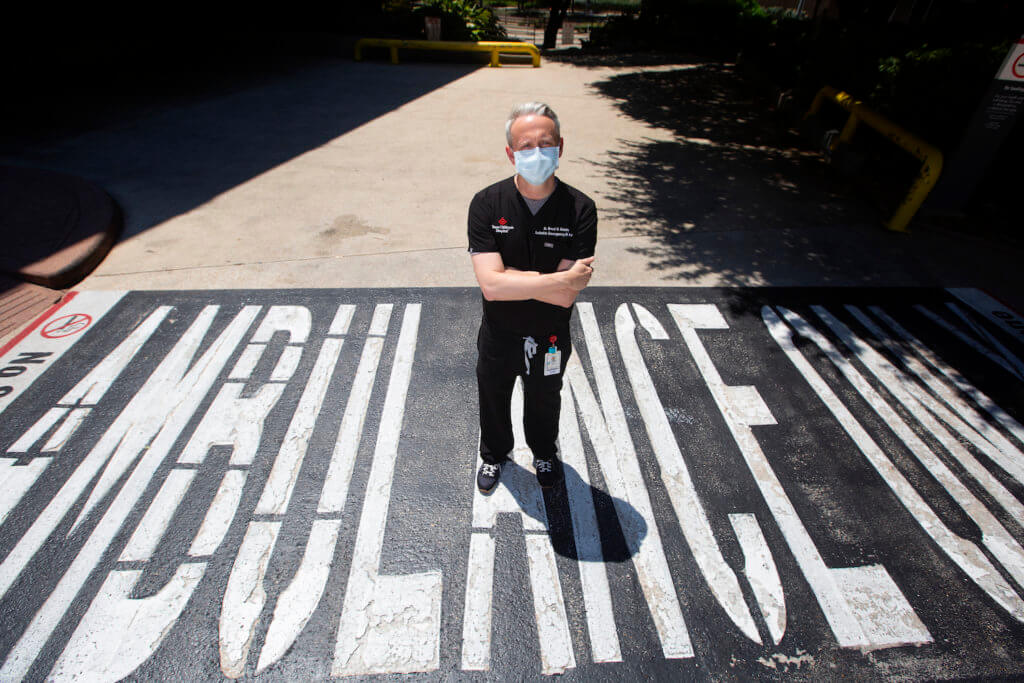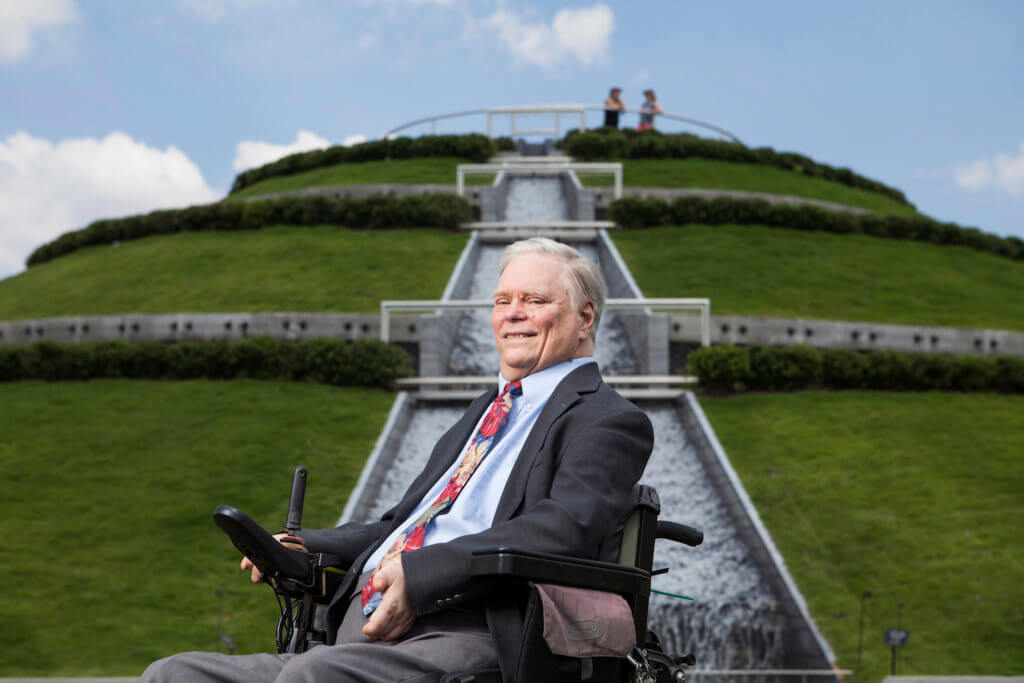Holidays in the Hospital: A Pediatric Chaplain Reflects on the Joys and Grace of Caregiving

On a fall day a few years ago, I received an urgent chaplaincy call to labor and delivery for a mom who was on the brink of giving birth. Our labor and delivery department sends thousands of parents home each year with healthy bundles of joy, but our hospital also takes care of some of the most severe high-risk pregnancies. That means our chaplaincy team spends a lot of time in labor and delivery offering care and support.
Often, these calls are for mothers who have experienced a stillbirth. We offer empathic support and a “naming ceremony,” blessing the name the parents have lovingly chosen for their child.
But the situation a few years ago was unique. I had met this family before, and I knew I needed to hurry. The parents had shared with me that while they did not know for certain what would happen to their baby, they knew the situation would be dire because of a pre-diagnosed condition. It was important to them that the baby be baptized, if at all possible.
As I made my way to the unit, I made sure I had a seashell, which we use to baptize babies and present to moms as a memento to cherish. For a male chaplain like myself, these bedside baptisms can feel somewhat awkward, as if we are imposing on a woman who has just given birth. At times, the medical team is still working with the mom. When I arrived to perform this particular baptism, I knew it was a privilege to be able to offer something so meaningful to the family. Not long after the baptism, the baby was whisked away to the NICU to begin a journey that would stretch through much of the holiday season.
The holidays are a joyous time for many families, but children’s hospitals find themselves stretched between two extremes. On the one hand, they’re cheery places. At Children’s Memorial Hermann, staff members always create a bright and cheery environ- ment for patients and families, especially during the holidays. We are blessed to have many organizations from the community give generously of their time and resources to our patients and families.
On the other hand, children’s hospitals during the holidays can be sad places where hardship continues for the families we serve. In our NICU, many families have no other choice but to stay here for weeks or even months as their babies fight to grow and thrive. Some families set their sights on being home by Thanksgiving or Christmas, only to see those hopes vanish due to unrealistic expectations or unforeseen setbacks. That’s always difficult news for everyone to accept.
For caregivers like myself, there’s often a vacillation between feelings of guilt and gratitude as we head home at the end of our shifts to spend time with our healthy families, happily celebrating together. When I consider what some of our patient families endure, when I hear their stories and witness their pain, I’m challenged within to be more patient—even when I become frustrated with some of the normal stresses that occur this time of year.
When I think back on that tiny baby I baptized in the NICU, I remember how tough the journey was for that family. I remember how, as the holiday season arrived, the baby began experiencing serious compli- cations. I remember, with a heavy heart, how the family ran out of options and had to consider withdrawal of treatments. The child’s mother wrestled with deep spiritual questions: Where is God? Why does God allow evil and suffering to exist? Why would God do this to my son? Why would God take my child?
As a pediatric chaplain, my job is to help normalize the feelings families have in these situations. I encourage them to express their feelings honestly to God, while affirming God’s love and empathy with the pain they are experiencing. I believe that just as parents are present with their child in suffering, God is present with the patient and family in their mutual suffering. Though I could not fathom the pain the baby’s mom felt and why God was not intervening to heal, I discussed our shared belief in the Incarnation—God’s choice to enter into the darkness of this broken world and to join in our suffering. I told her that God could empathize with the pain she felt.
Her baby would not live to celebrate his first Christmas.
No matter the time of year, our entire medical team truly feels for families like this. And when we see a child come in during the holidays with a non-survivable illness or injury, there’s an added layer of grief. When a death occurs, we not only grieve that the mom and dad have lost their child, but we wonder: Will they relive this again next year? Will they ever be able to experience the holidays like they did before this loss?
As a father of two children myself, I often wonder how I’d be able to face what these parents are facing. How is it that my kids are healthy? Again, guilt and gratitude. Unexplainable grace. Unfair grace? I sometimes feel like a child on Christmas morning, running in to find a big gift with my name on it under the tree, only to notice my little sister in tears, realizing there’s nothing under the tree for her.
Most days when I leave the hospital, I see lines of cars and families huddled along the sidewalks. And as I head home for the holidays, I’m aware that my colleagues will continue to minister to the needs of these families and the loved ones they’ve entrusted to our care. This time of year especially, we must look past the tinsel and lights to what is most meaningful: Love and faith, in a world where there are no guarantees.
Joel Blest is a pediatric chaplain at Children’s Memorial Hermann Hospital.





